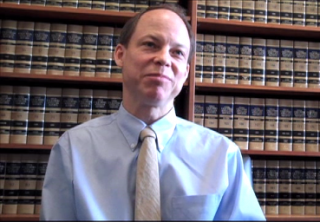 Remember Brock Turner and the collateral outrage after Judge Aaron Persky sentenced him to a measly three months in jail for sexually assaulting a college girl near a dumpster? Well, after several months of cries to “Recall Judge Persky,” for what was widely believed to be judicial bias favoring Brock Turner, it’s time to finally close the book on this whole disturbing ordeal.
Remember Brock Turner and the collateral outrage after Judge Aaron Persky sentenced him to a measly three months in jail for sexually assaulting a college girl near a dumpster? Well, after several months of cries to “Recall Judge Persky,” for what was widely believed to be judicial bias favoring Brock Turner, it’s time to finally close the book on this whole disturbing ordeal.
Today, the California Commission on Judicial Performance released a 12-page report and officially made a finding that there was no evidence of bias on the part of Judge Persky, and that his sentencing of Brock Turner conformed to “parameters set by law and was therefore within the judge’s discretion.” For anyone who has ever spent a few days inside a criminal courtroom, this outcome is hardly a shock. The problem with the Brock Turner case wasn’t the sentencing. Neither was it the judge, or the trial, or any other aspect of courtroom procedure. The problem was the crime. Brock Turner’s violent abuse of a young woman was disturbing, frightening, and deeply disgusting. There were two culprits for those facts. The first is Brock Turner himself, who criminally violated and permanently damaged a young woman for whom life will never return to normal. The second, less tangible (and, in my book, less culpable) culprit is the world surrounding Brock Turner – the world of his family, friends, classmates, and society at large who contributed in varied degrees to creating the criminal he became. While Aaron Persky is certainly part of that second, amorphous group, his blame hardly rises to a level requiring judicial discipline.
The kind of judicial bias for which the California Commission on Judicial Performance was looking would have needed to result in Judge Persky’s inability to remain neutral, based on a personal relationship with Brock Turner or his lawyer. Like all judges, Judge Persky swore an oath to uphold the law irrespective of his personal beliefs; a finding of judicial bias in the Turner case would require that the judge went easy on this defendant because of some personal connection he had to the case. No such evidence was found. In fact, no credible allegation of such a personal bias was even made. The heart of the public’s outrage over Persky’s sentencing was that it simply felt “too light.” The punishment just didn’t seem to fit the crime.
I couldn’t agree more. A college girl who was battered, bruised, and raped near a dumpster — a girl who was attacked, used, and discarded, and who will feel the effects of her victimization for the rest of her life—deserves more justice than knowing that her attacker served three months behind bars. And the revolting criminal who perpetrated this crime deserves a hell of a lot more punishment than he got. But the practice of criminal law is a far more complex calculus; it requires the use of sentencing guidelines and pre-sentencing reports. It requires its judges and prosecutors to operate in a world where there is a spectrum of horrors. Aggravating and mitigating factors cannot and should not be ignored. To do so is to create a criminal justice system that lacks fundamental fairness.
Brock Turner is a young man with a supportive family. His future, prior to his crime, was bright. He is educated and middle-class. He fits the profile of someone that could actually be rehabilitated by a brush with the law. As a society, we believe these factors are meaningful, which is why the law permits Judge Persky to take them into account at sentencing. There’s also the very relevant factor of evidence. Whatever monster we believe Brock Turner to be, he was not convicted of rape; he was convicted of a lesser sexual assault, likely because there was insufficient evidence to support a rape conviction. If we feel like Turner wasn’t sufficiently punished, we need to look deeper than the sentencing phase of his trial. We need to look at why sexual assault cases proceed differently from other criminal cases, why victims are perceived differently, why law enforcement works differently, and why juries convict less.
Judge Persky doled out a sentence that is alarmingly lenient; but when he did so, he followed the legal guidelines given to him. His decision was neither biased nor illegal, nor unethical. If we believe that sexual assault cases like Brock Turner’s require harsher punishment, then our gripe is with the lawmakers who draft the sentencing guidelines. If we believe that the horrifying facts of Turner’s assault are not sufficiently mitigated by the defendant’s youth and promise, then it is society’s values we should seek to change. Either way, the problem isn’t Aaron Persky.
.
This is an opinion piece. The views expressed in this article are those of just the author.